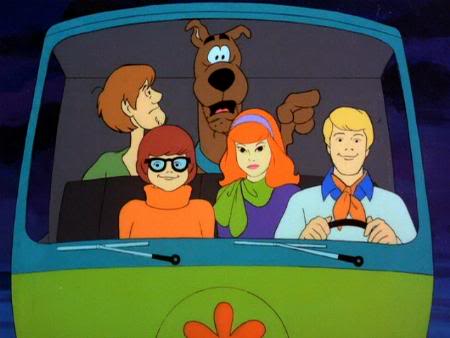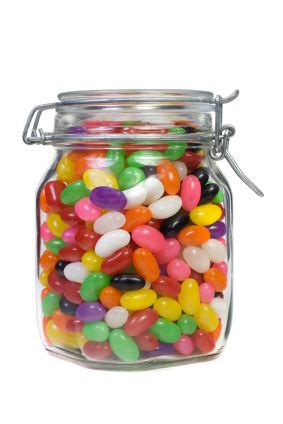Does the machine know that box is not an option? Thinking that A, A+B, and B are all valid options is something I could see an AI doing.
There also isn’t much penalty for taking A+B? You’ll always get at least $1M. And if you took only B, the max you could get is $1M.
Edit: I can’t read lol. I’d still take both, the result is
Predicted A+B: $1M
Predicted B only: $1001M
If you only take box B, the result is
Predicted A+B: $0
Predicted B only: $1000M
I think the machine predicts 2 results, either
Box A is taken = True
OR
Box A is taken = False
Something like:
If (Box A Taken = True) {place ($0) in Box B} else {place ($1,000,000,000) in Box B}Machine doesnt care if you also take Box B, it only cares if Box A is one of the boxes taken. If you take no boxes, Box B would still have a billion dollars, although thats kinda dumb choice from a gameshow host’s perspective.
I would assume the machine would predict I take both because it would know me too well to belive there would be anything in B, so I would take A.
Box A and B as the prediction has already been made so the choice has no bearing on the contents at this point. You either get the guaranteed million or both.
Well what you choose may not direct affect what is inside Box B, but there is still a huge difference between the two choices.
Imagine the way that the machine did it’s prediction was copying your brain and making this copied brain choose in a simulation. Assuming the copied brain is completely identical to your brain, the machine could predict with 100% accuracy what the real you would choose. In this sense, what you choose can affect what’s inside Box B (or rather, what your copied brain chooses can affect whats inside Box B).
One more thing to think about: How do you know that you aren’t the simulated brain that’s been copied?
I feel like unless we’re talking about supernatural AI the only answer is A&B
Otherwise the box has no real way of knowing what you would’ve picked, so it’s complete RNG.
If there was a realistic way that it could make that decision i’d choose only B, but otherwise it just doesn’t make sense.
edit: I also didn’t realize until after I read it that box A always has the million dollars. So there’s actually no reason to pick only box B in this scenario. The paradox only makes sense if box A is significantly less than box B. It’s supposed to be a gambling problem but A&B is completely safe with the changes made.
Both, safer bet.
If the prediction is at all accurate there is a good chance I get nothing.
I can make more betting in horse races with Box B… so i will go Box B.
I’d take box A and B because that would get me 1 MILLION DOLLARS. Yes I’m risking 1 BILLION DOLLARS but I’d rather have a guaranteed million.
Hehe thats why I think the original question of Box A being $1000 and Box B being a million was kinda boring, since $1000 is barely anything in today’s world. 3 more zeroes does making things more interesting
Do I have access to a What-If machine and the Finglonger?
I’d much rather take a sure million with a (slight?) chance of a bonus billion, versus an unknown chance at 0 or a billion. I could do plenty with a million that would significantly change my life for the better.
But I would probably do the opposite if A contained $1000 and B contained a potential million as in the original example. $1000 is a tolerable amount to risk missing out on.
Well if it’s a machine that’s 100% correct in its predictions obviously I’d take box B since that’d be a guaranteed billion - but assuming it’s fallible, I’d go with A+B. A million dollars is plenty of money, I don’t even know what I’d do with a billion.
If I wanted to use logic, I’d say taking both A and B is the only way to have a guaranteed $1,000,000 outcome, because B only could get you money but also nothing.
But, if I choose B only, I’m sort of “forcing” the machine into that kind of prediction, right? I don’t know about this experiment, but since your post says it’s a paradox, I think that’s how it works.
So my choice is B only, the machine has predicted it and I get a nice $1,000,000,000.
Am I totally off? :D
I’ll abstract the problem a tiny bit:
- a = the prize in box A
- ka = the potential prize in box B; i.e. “k times larger than a”
- p = the odds of a false positive. That is, the odds that you pick box B only and it got nothing, because dumb machine assumed that you’d pick A too.
- n = the odds of a false negative. That is, the odds that you pick A+B and you get the prize in B, because the machine thought that you wouldn’t pick A.
So the output table for all your choices would be:
- pick nothing: 0
- pick A: a
- pick B: (1-p)ka
- pick A+B: a + nka
Alternative 4 supersedes 1 and 2, so the only real choice is between 3 (pick B) or 4 (pick A+B).
You should pick A+B if a + nka > (1-p)ka. This is a bit messy, so let’s say that the odds of a false positive are the same as the odds of a false negative; that is, n=p. So we can simplify the inequation into
- a + nka > (1-n)ka // subbing “p” with “n”
- 1 + nk > (1-n)k // divided everything by a
- 1 + nk - (1-n)k > 0 // changed sides of a term
- 1 + 2nk -k > 0 // some cleaning
- n > (k-1)/2k // isolating the junk constant
In OP’s example, k=1000, so n > (1000-1)/(2*1000) → n > 999/2000 → n > 49.95%.
So you should always pick B. And additionally, pick A if the odds that the machine is wrong are higher than 49.95%; otherwise just B.
Note that 49.95% is really close to 50% (a coin toss), so we’re actually dealing with a machine that can actually predict the future somewhat reliably, n should be way lower, so you’re probably better off picking B and ignoring A.
I’ll abtract the problem…
Proceeds to teach calculus
BRB, finding a way to insert derivation by parts into that. :^)
Damn dude.
The best case result is 1.001.000.000 (A+B) vs 1.000.000.000 (B) only. Worst case is I have 1.000.000 only.
I go with B only because the difference feels tiny / irrelevant.
Maybe I actually have free will and this is not determism kicking in, but who knows. I‘m not in for the odds with such a tiny benefit.
Worst case is I have 1.000.000 only.
Except that’s not the worst case. If the machine predicted you would pick A&B, then B contains nothing, so if you then only picked B (i.e. the machine’s prediction was wrong), then you get zero. THAT’S the worst case. The question doesn’t assume the machine’s predictions are correct.
Good point. Actually I was assuming that the machine’s predictions were never wrong. That’s also what is defined in the Newcomb’s Paradox wiki page.
If that‘s not a 100% given, you are definitely right.
Well if you actually have free will, how can the machine predict your actions?
What if someone opened box B and showed you what was in it? What would that mean? What would you do?
I meant, let’s imagine the machine predicted B and is wrong (because I take A+B). I would call that scenario „I have free will - no determinism.“ Then I will have 1.000.000.000 „only“. That’s a good result.
Maybe interesting: Wiki - Determinism
Box A.
You never know the shenanigans of a machine, and one million is largely enough for me until I die, or if science gives us the option to live forever I bet machines will do the work for us :-)
Edit: as I believe the machine can be wrong, I’d probably take A + B
OP never said there could be a prize in Box A. There’s either a prize in Box B, or no prize at all. So there’s zero point in taking both boxes.
Box A has $1,000,000
Box A has $1,000,000
Literally the title of the post








